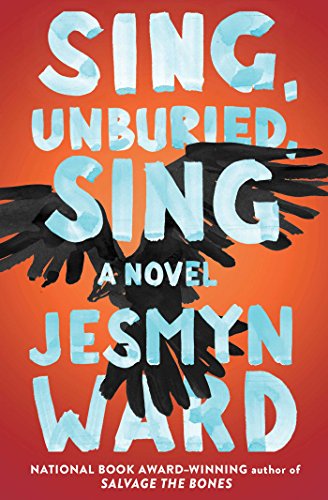Reviewed by gmcgregor on
When she finds out Michael is due to be released early, Leonie loads her kids in the car and drives to Parchman to get him. It's the same prison where her own father, River, once served time in his youth, and his past there becomes important because Michael isn't the only passenger they pick up: they're also joined by the ghost of a teenager named Richie. Only Jojo and Kayla can see Richie, who Jojo's heard about in his grandfather's stories, and when the family arrives back home, Jojo agrees to confront his grandfather to find out how Richie died.
There's a lot more to it, and that's actually one of the highlights of this novel: it is rich in atmosphere. Ward deftly weaves together the stark realities of poverty, drug addiction, how parents and children can fail each other, and the way the justice system works for the white power structure and against people of color. She brings certain threads to the forefront at times, then others, but never loses track of any of them. She also does beautiful work of characterization, making Jojo an incredibly sympathetic and compelling protagonist, showing Leonie's selfishness and the damage it causes but depicting her as a deeply flawed human rather than a one-note villain, conveying the decency and strength of River and his wife Philomene, doing their best in a world that has not done right by them.
But though it does some things incredibly well, it stumbled hard (at least, for me) in other ways. The most pronounced was that it sets itself in the literary tradition of Beloved...and then doesn't measure up to the incredibly high bar of Toni Morrison's masterpiece. You can't write a story about the stain of institutionalized racism that prominently features ghosts and the mysterious death of a child without knowing that you're going to be compared to Beloved, and if you're going to go there, you better bring it. It wasn't brought. Ward's choice to use Richie as the most prominent ghost in the narrative rather than Given (who Leonie sees only when high), an actual member of the family whose perspective could have been used to give more context to Leonie's youth, is inexplicable to me. I never got invested in Richie, which meant that when Ward brought her threads together for a set of final climactic scenes that are supposed to pack a huge emotional punch, it felt overwrought and unearned rather than profound and cathartic. It has merit, and it's worth reading, but if you haven't read Beloved, read that and skip this.
Reading updates
- Started reading
- 6 September, 2018: Finished reading
- 6 September, 2018: Reviewed
